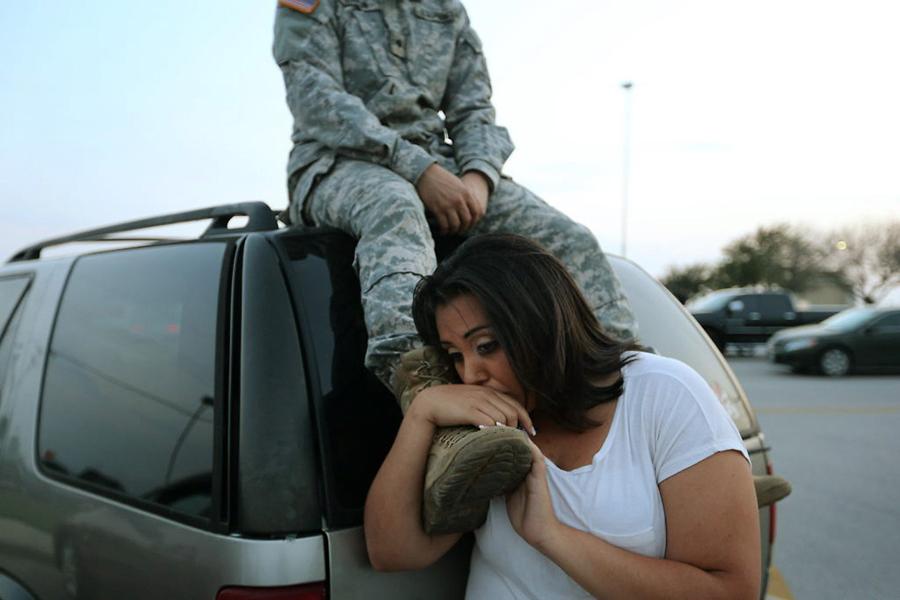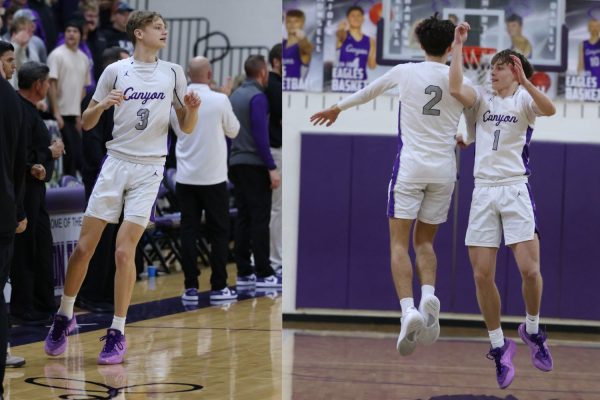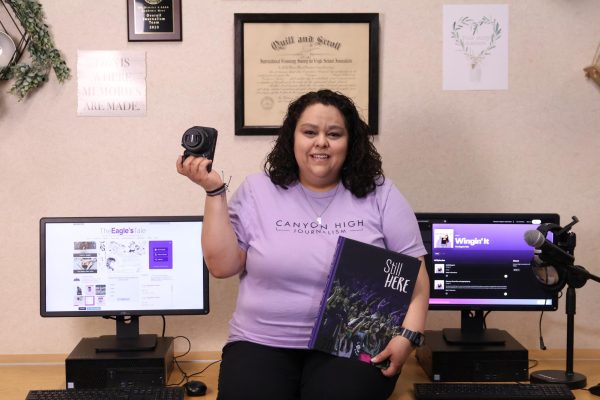Military officials have not pinpointed motivation behind shooting spree at Fort Hood
Lucy Hamlin and her husband, Spc. Timothy Hamlin, wait to get back to their home on the base following a shooting incident at Fort Hood, Texas, on Wednesday, April 2, 2014.
Family and friends of Fort Hood shooter Ivan Lopez, grasping to explain his behavior, pointed to several recent setbacks that could have sparked his rampage. Yet military officials cautioned Thursday that they hadn’t identified any single reason why the Army specialist opened fire on his comrades a day earlier, killing three and wounding 16 before turning his gun on himself.
Friends from Lopez’s Puerto Rican hometown of Guayanilla told The Austin American-Statesman that the soldier was upset about the recent deaths of his mother and grandfather. His mother, Carmen, a nurse, died of a heart attack in November in Lopez’s native Puerto Rico. A month earlier, his grandfather died.
“It had a big impact. It surely had to do with his psychological state,” said family friend Glidden Lopez-Torres, speaking by phone from Guayanilla, a town of 10,000 on the southern coast of Puerto Rico. An unnamed childhood friend also told the Nuevo Dia newspaper there that Lopez was upset that Army leaders gave him only a 24-hour leave to attend his mother’s funeral.
Nuevo Dia quoted the friend as saying that Lopez also recently had an argument with someone at Fort Hood and might have been robbed.
Lt. Gen. Mark Milley, Fort Hood’s commander, stressed, however, that investigators were still sorting through information to identify what set Lopez off. Thus far the evidence has yielded some contradictions.
While Milley said there was a possibility that a “verbal altercation” with another soldier preceded the shooting, for example, he added that there was also no indication that Lopez had targeted anyone in particular.
And while Army Secretary John McHugh said military mental health workers had evaluated Lopez a month ago and discovered no indications he was violent or suicidal, Milley later said that Lopez’s psychiatric condition was “a fundamental underlying cause” of his behavior.
According to Fort Hood officials, Lopez was being treated for depression and anxiety and being evaluated for post-traumatic stress disorder. He also told his superiors he had suffered a traumatic brain injury. McHugh said Lopez had been prescribed Ambien, a sleep aid.
Army officials said Lopez, 34, joined the Puerto Rican National Guard in 1999, when he would have been 19 or 20 years old. In 2007, he served a yearlong tour to Egypt on a “peace and security” mission.
Military officials said Lopez enlisted in the U.S. Army in 2008. According to personnel records, he served in Iraq for a four-month period in 2011; however, officials said he didn’t see combat.
While Lopez’s tour to Iraq was unusually short _ most deployments at that time were nine to 12 months _ officials said that wasn’t a reflection of any personal problems, but rather simply because “the unit mission was complete at four months,” Milley said. Lopez was among the last American soldiers to leave Iraq as part of the 2011 withdrawal.
After serving as an automatic rifleman, Lopez became a military truck driver in December 2013, shortly before the Lopez family transferred from Fort Bliss, outside of El Paso, to Fort Hood in February.
Former neighbors in El Paso said that Lopez and his wife were friendly, but kept to themselves. They displayed a Puerto Rican flag in their apartment window amid neighbors who were mostly of Mexican heritage, a neighbor said.
“He was friendly and seemed like a nice person. He was always like that, the whole time they lived here,” said Rosalinda Portillo, who lives in the apartment above where the Lopez family had lived.
Those who knew him in his hometown remembered Lopez as a quiet student and school band member, who attended Catholic schools and married his childhood sweetheart.
“We never had a discipline problem with him,” Edgardo Arlequin Velez, Lopez’s former teacher and currently mayor of Guayanilla told the Statesman. “Never, never.”
“Ivan and his family are beloved here in Guayanilla,” added Evelio Brocco, who works for the mayor.
Velez, who taught Lopez in sixth grade, described him as a quiet student from a well-known local family known for its musical talent. Ivan played drums in the school band.
Lopez married a childhood friend after they graduated from high school, and they had two children, Velez said. The mayor added that, although Lopez’s first wife moved to the U.S. mainland when he joined the Army, she moved back to Puerto Rico after they split up.
Friends said he had remarried and he had two additional children who lived with him and his wife in Killeen. A Facebook page that appears to belong to Lopez, under the name Ivan Slipknot, shows the soldier on family trips with his children as well as a number of photos that appear to show him in battle uniform while deployed to Iraq.
News of the shooting left La Garita restaurant, a gathering place for Killeen’s Puerto Rican population, unusually quiet Thursday afternoon. Co-owner Hector Torrez and a patron said they couldn’t recall Ivan Lopez stopping by the eatery, which is just beyond Fort Hood’s east gate, or reaching out to the local Puerto Rican community.
Still, Torrez said, “today is a sad day, and people are sad.”
Back in Guayanilla, Lopez-Torres speculated that Lopez’s strict Catholic upbringing might have left him conflicted about his participation in the war. “One never knows the repercussions going to war can have in a particular individual,” he said.






